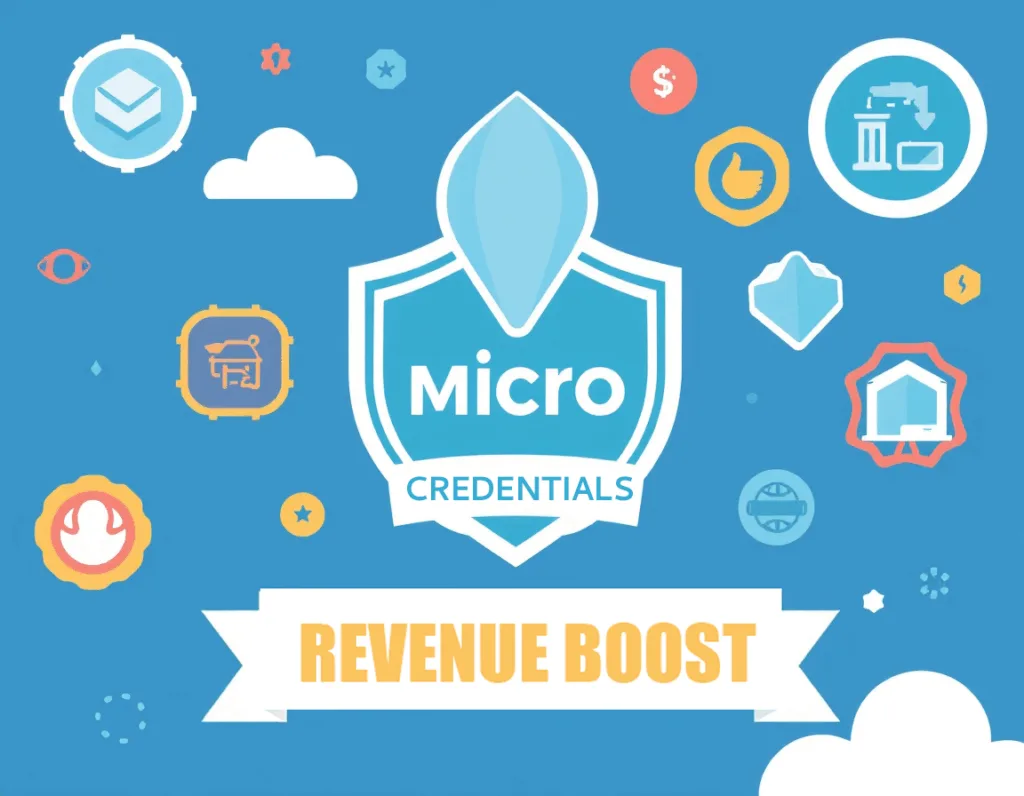
Associations today face increasing pressure to diversify revenue streams beyond traditional membership dues. You can boost non-dues revenue with micro-credentials and certifications, tapping into the growing demand for skill-based learning.
As professionals prioritize skills over degrees for career advancement, associations can leverage this trend to attract new members and drive revenue.
The Rise of Skills Over Degrees
As employers increasingly value job-ready skills over traditional degrees, micro-credentials have become an attractive alternative for professionals. These short, targeted learning opportunities are cost-effective and directly applicable to the workplace.

Source: Naylor’s 2024 Association Benchmarking Report
88% of employers say micro-credentials improve a candidate’s appeal.
70% of employers are more likely to hire candidates with industry-recognized credentials.
Micro-credentials allow learners to gain focused knowledge in a specific area without the time and financial commitment of a full degree program.
Associations that provide micro-credentials can meet this demand. They position themselves as the training authority of their industry, and everyone benefits—the learner, their employer, and the association.
Premium Learning: A Revenue Booster
Offering specialized courses, micro-credentials, and certifications provides significant value to both members and non-members. These “premium learning” programs can be sold independently of annual dues, broadening an association’s reach while creating consistent revenue.
However, developing such offerings requires resources that associations have limited access to. To address this, associations can partner with an eLearning provider. Content partners ensure the development of high-quality programs while minimizing the association’s resources.
Certifications and Recurring Revenue
Certification programs, a familiar revenue stream for many associations, offer professionals a way to demonstrate expertise in specific fields.
These programs provide valuable credentials that professionals rely on to demonstrate their expertise. Additionally, they generate recurring income through certification renewals, typically required every few years, making them a reliable ongoing revenue source.
As young professionals increasingly seek the most up-to-date and relevant certifications, associations must regularly review and refresh their offerings.
By keeping certification programs current, associations can attract new members and maintain their competitive edge in the industry.
Boosting Traffic and Engagement With Educational Offerings
Educational offerings do more than generate revenue; they also drive engagement. These programs can be leveraged to increase website traffic, expose visitors to additional resources, and entice non-members to join to access discounted learning opportunities.
This creates a cycle of growth, boosting both revenue and membership.
Conclusion: A New Era of Growth for Associations
By embracing premium learning opportunities, like micro-credentials and refreshed certifications, associations can unlock new revenue streams, meet the demand for skill-based learning, and position themselves as leaders in professional development.
This strategy supports member growth and secures associations’ sustainable financial future in an evolving landscape.